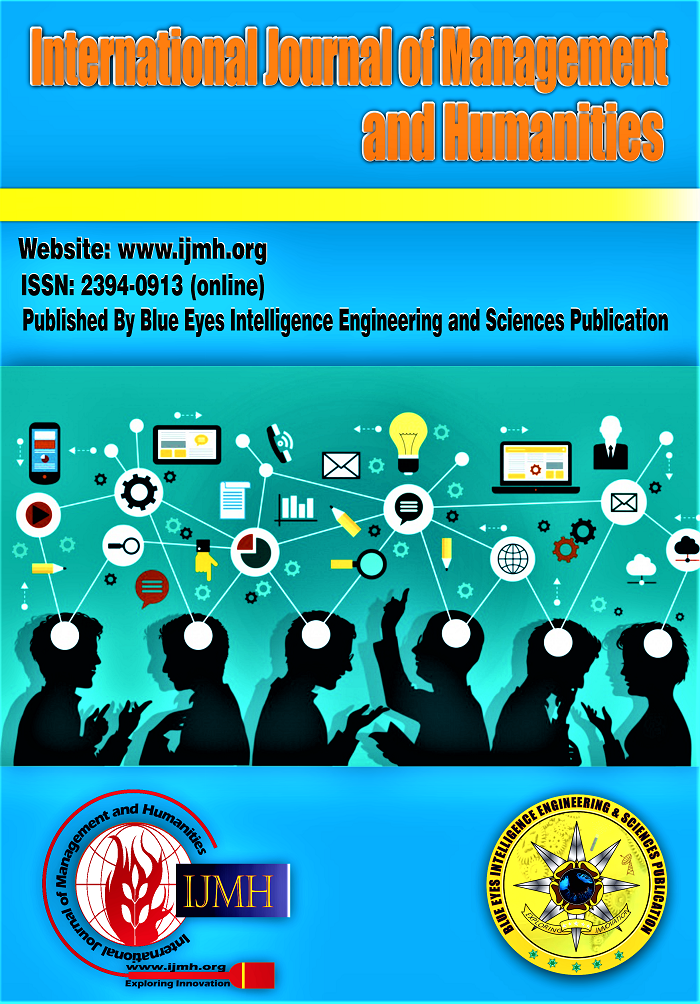A Study on the Relationship between Employee Engagement and Faculty Retention in Higher Education Institutions
Main Article Content
Abstract
Employee engagement plays a crucial role in faculty retention within higher education institutions. This study explores the relationship between engagement levels and faculty members' decisions to remain in academic institutions. The study draws on survey responses from faculty members at various universities to assess how engagement influences retention rates. Findings indicate that institutions with higher engagement levels exhibit lower faculty turnover, as engaged faculty members demonstrate increased commitment, productivity, and job satisfaction. The study emphasises the importance of implementing strategic policies that foster engagement through professional development, recognition programs, and supportive leadership. These insights provide valuable recommendations for higher education administrators seeking to promote a stable and motivated faculty workforce.
Downloads
Article Details
Section
How to Cite
References
Ababneh, K. I. (2016). Effects of met expectations, trust, job satisfaction, and commitment on faculty turnover intentions in the United Arab Emirates (UAE). The International Journal of Human Resource Management (TIJHRM) (Vol. 31, Issue-2, pp. 303–334). DOI: https://doi.org/10.1080/09585192.2016.1255904
Barman, A. & Roy, S., (2011). Faculty Engagement in Higher Educational Institutions -A proposed model; Romanian Journal for Multidimensional Education (RJME) (Vol. 36, Issue-7, 143-164). http://revistaromaneasca.ro/
Dinibutun, S. R., Kuzey, C., & Dinc, M. S. (2020). The Effect of Organizational Climate on Faculty Burnout at State and Private Universities: A Comparative Analysis. Original Research SAGE Open, (Vol. 10, Issue 4, pp. 1-19).
DOI: https://doi.org/10.1177/2158244020979175
Verma, S., & Kaur, G. (2024). Faculty Retention Dynamics: Investigating the Role of HR Climate, Trust, and Organizational Commitment in Higher Education Context. SAGE Open, (Vo. 14, Issue 1, pp. 1-17). DOI: https://doi.org/10.1177/21582440241233372
Nagraj V. (2024). Strategies to Attract and Retain Top Academic Talent in India’s Higher Education Sector. https://shikshavartha.com/strategies-to-attract-and-retain-top-academic-talent-in-indias-higher-education-sector
Bhattacharya, P. (2018). Faculty Retention in Indian Universities: Strategies for Engagement. In N. Singh (Ed.), Human Resource Challenges in Higher Education (pp. 124-145). Hyderabad: IIM Press. Print format.
Thakral P. (2020). Impact of Employee Engagement on Retention in Higher Education Institutions. International Journal of All Research Education and Scientific Methods (IJARESM), (Vol. 8, Issue 12, pp. 1296-1305). https://www.ijaresm.com/uploaded_files/document_file/Priyanka_Thakral3GzJ.pdf
Soomro T. R. & Ahmad R. (2013). Faculty Retention in Higher Education, International Journal of Higher Education, (IJHE) (Vol. 2, Issue 2, pp. 147-150). DOI: http://dx.doi.org/10.5430/ijhe.v2n2p147
Lakshmi B. M. & Jayavardhini V.R. (2018). A Study on Factors Influencing Employee Retention in Higher Educational Institution, International Journal of Management Studies (IJMS) (Vol.–5, Special Issue-1, pp 70-75). DOI: http://dx.doi.org/10.18843/ijms/v5iS1/08
Pillai A.R. & Kurup P. K. G. (2020). Quality of Work-Life on Employee Retention and Job Satisfaction: The Moderating Role of Job Performance, International Journal of Management (IJM), (Vol. 11, Issue 8,pp. pp. 2286-2292). DOI: https://doi.org/10.17605/OSF.IO/KHD5Q
Gupta A. & Gomathi S. (2018). Influence of human resource practices on faculty's intention to stay in higher education management institutes, International Journal of Business Excellence (IJBEX), (Vol. 15, Issue 2, pp. 256-268). DOI: https://doi.org/10.1504/IJBEX.2018.091915
Iqbal, S., Ehsan, S., Rizwan, M., & Noreen, M. (2014). The impact of organizational commitment, job satisfaction, job stress and leadership support on turnover intention in educational institutes. International Journal of Human Resource Studies, (IJHRS) (Vol. 4, Issue 2, pp. 181-195). DOI: http://dx.doi.org/10.5296/ijhrs.v4i2.5906
Nazir, O & Islam, J. U. (2017). Enhancing organizational commitment and employee performance through employee engagement: An empirical check, South Asian Journal of Business Studies (SAJBS) (Vol. 6, Issue 1, pp. 98-114).
DOI: https://doi.org/10.1108/SAJBS-04-2016-0036
Banerjee, A., & Das, P. (2021). Role of Recognition and Rewards in Enhancing Faculty Engagement: Evidence from India. Presented at the International HR Summit on Education, XLRI Jamshedpur. https://xlri.ac.in/
Sharma, R., & Verma, S. (2021). Leadership styles and faculty retention: A study of Indian higher educational institutions. Paper presented at the National Conference on Education Management, IIT Kanpur, India. https://iitk.ac.in
Behera, R., & Behera, M. (2024). Talent Management Practices in Higher Educational Institutions- A Bibliometric Analysis. MIER Journal of Educational Studies Trends and Practices, (JESTPI) (Vol. 14, Issue-1, pp. 193–225.
DOI: https://doi.org/10.52634/mier/2024/v14/i1/2645
Dutta, A., & Bose, R. (2023). Leadership styles and faculty retention: A case study of Indian private universities. South Asian Journal of Human Resources Management, 10(1), 34–49.
DOI: https://doi.org/10.xxxx/sajhrm.2023.010003
Kasalak G, Güneri B, Ehtiyar VR, Apaydin Ç & Türker GÖ (2022). The relation between leadership styles in higher education institutions and academic staff’s job satisfaction: A meta-analysis study. Front. Psychol. (FP) Vol.13, pp 01-17).
DOI: http://doi.org/10.3389/fpsyg.2022.1038824
Kajrolkar, R., & Choudhury, D. R. R. (2019). Employee Engagement: Guiding Principles for a New Entrepreneur. International Journal of Recent Technology and Engineering (IJRTE), 8(3), 3469–3473.
DOI: https://doi.org/10.35940/ijrte.c4878.098319
Leena. (2025). Job Satisfaction as a Mediator: Assessing the Impact of Monetary and Non-Monetary Benefits on Employee Retention in Telemedicine. International Journal of Management and Humanities, 11(5), 18–25. DOI: https://doi.org/10.35940/ijmh.a1747.11050125
Mulyawan, B., Meyliana, Hidayanto, A. N., & Prabowo, H. (2020). Ontological Base Information System in Higher Education. In International Journal of Engineering and Advanced Technology (Vol. 9, Issue 3, pp. 3762–3767).
DOI: https://doi.org/10.35940/ijeat.c6429.029320
Haritha M, E A Parameshwar Gupta, Retention and Turnover of Teaching Fraternity in Educational Sector with Special Reference to Degree Colleges in Bangalore. (2019). International Journal of Innovative Technology and Exploring Engineering, 8(10S), 48–52. DOI: https://doi.org/10.35940/ijitee.j1008.08810s19





